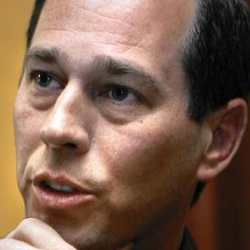Four Pennsylvania state senators have introduced an Internet gambling bill they believe could bring hundreds of milions of dollars in tax revenues to the state each year. On Wednesday, Senate President Pro Tempore Joe Scarnati suggested that he and 3 other Republican state senators expect to introduce the bill in the following days.
Scarnati’s memo said that existing Pennsylvania casinos and racinos are going to have the right to offer legal online gambling. For people to be able to play, the gambler has to be inside the state of Pennsylvania and they must have a registered account. If the system works like New Jersey’s, then people can sign up for an account anywhere in the United States, but would only be able to play for real money once inside Pennsylvania. Geolocation software on the websites would be able to detect the ISP address of each player, thus knowing whether they were in Pennsylvania or not.
Bill Worth Hundreds of Millions of Dollars
The memo by the GOP state senators suggested that the bill would allow the state to collect hundreds of millions of dollars each year in taxes and fees from the gaming operators. It has not been revealed yet whether the bill would legalize both online poker sites and online casinos, or if this is another bill which only legalizes and regulates Internet poker.
Previously, three different representatives of the Pennsylvania House of Representatives have introduced gaming bills. In two of those bills, online casinos would be legalized. In a third bill, online poker rooms are the only type of gaming allowed. The difference in the two set of laws represents hundreds of millions of dollars, because online casinos have outperformed online poker sites in the New Jersey gaming market.
In New Jersey in the first full calendar year of online gambling, the casino operators collected $120 million-plus in revenues, with the state getting a much smaller percentage of that money. Pennsylvania has a population two-and-a-half times larger than New Jersey, so one might assume the potential windfall for Pennsylvania would be in the range of $300 million.
Why $300 Million Is Conservative
Pennsylvania might receive bigger revenues, though. New Jersey only has 8 Atlantic City casinos and only 6 of those businesses have gaming websites. Of those, two are owned by Caesars Interactive, the online division of Caesars Entertainment, and are therefore virtually the same operations. Pennsylvania has 5 full casinos and 9 racetrack casinos (racinos), so it could potentially have almost three times the number of websites operating.
Pennsylvania’s larger population might mean more than a 1-to-1 profit ratio for the Internet poker sites. Online card rooms need big player communities to operate effectively. While online casino games like slots, blackjack, craps, and roulette work just fine with a single player, online poker games need 9 real people at the table. Poker comes in several variants, so a good poker site is going to need tables for Texas hold’em, Omaha hold’em, seven-card stud, razz, and other variations of those games.
How Online Poker Works
Also, gambling has low-stakes, middle-stakes, and high-stakes players, so each of the games describes above would need to have tables at various betting limits. Beyond that, some gamblers like big tournaments with huge prize pools, which takes hours and hours to complete. Others do not have the time for such games, so they prefer turbo or sit-n-go events. Some players want a simple freezeout tournament, while others prefer events with rebuys and add-ons for their chip stacks. Still others don’t want to enter tournaments at all, but would prefer to gamble in the cash games called “ring games”, which allow them to cash out at any time.
Put all of this together and a good poker website needs hundreds, even thousands, of players to be online at peak hours. Even in the dead of the night, a decent selection of games should be available. And in the big weekend tournaments, the bigger the jackpot prize, the more likely word-of-mouth gets around and more Pennsylvanians sign up for the tournament. Therefore, poker rooms in bigger states might be a great deal more lucrative than they would in smaller states, where they might be a waste of time and resources for a land-based casino to operate. Thus, Pennsylvania has the potential for a bigger industry than the $300 million one might otherwise assume.
The revenues also could be increased if a top poker site like PokerStars is allowed in the market. PokerStars, which has the biggest poker operation on the Internet, has been barred from entering the gaming markets of New Jersey, Nevada, and Delaware–the other three states with regulated online gambling. The company is seen as a bad actor, because it accepted players after the UIGEA law was passed in 2006 by the US Congress. Pennsvlvania legislators who’ve made proposals in the near-past have called for bans on PokerStars, so Scarnati’s bill might do the same thing. This would lessen the potential windfall, though.
Negotiations with Tom Wolf
With that in mind, Scarnati and his fellow senators hope to close Pennsylvania’s $1 billion budget deficit. The four GOP lawmakers are not suggesting that the gaming bill would solve all of the state’s budget problems, but they do believe it could be a significant part of the solution–and one which does not require raising taxes.
The officer of Gov. Tom Wolf said that the chief executive is open to a discussion of the gambling bill, despite the two sides being in oppositional parties. The spokesman for Tom Wolf said that the governor does not see the online gambling bill as a replacement for the tax increase the Democrat is seeking, given that the revenues collected would not cover the budget deficit.

